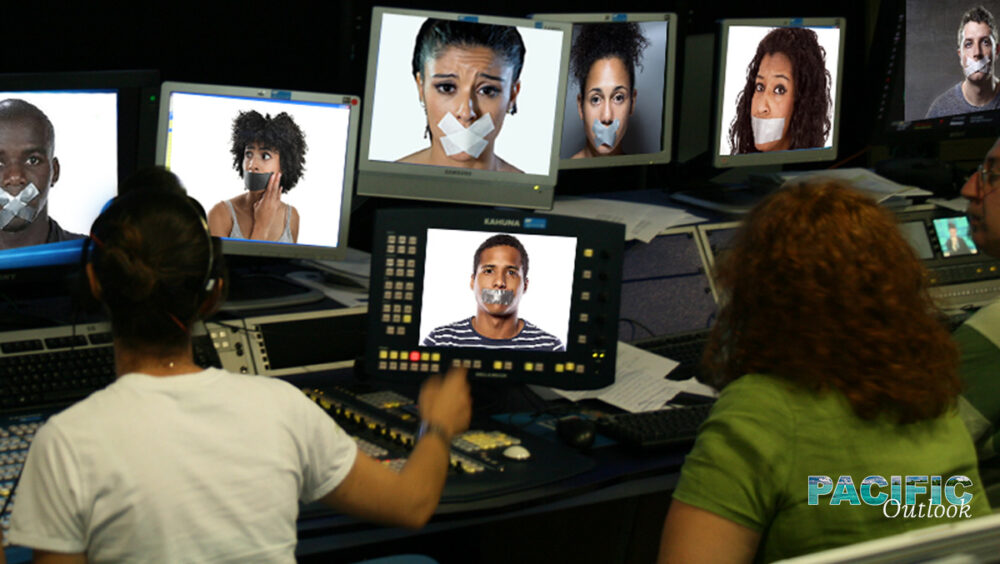Pacific nations are on the frontline not only of climate change impacts but also of competition between opposing super powers, like China and the U.S, as they try to exert their influence in the region. Australia, the big brother across the pond, is also re-strategising to step-up its efforts, not without complaints, along with other developed democracies. The Pacific is vulnerable with a number of development challenges including poverty, corruption and the age-old problem of bad governance. But as a result of contemporary diplomatic interest in the region money is pouring in from everywhere.
So, it is essential that Pacific people stay informed about their governments’ actions – such as the types of deals that they are making, alliances that are being forged – when they say they are working to improve the livelihoods of the people. Without actively following what is going on and putting ourselves in a position to formulate an objective opinion about cultural, economic, social and political matters it is difficult to navigate our place in a democratic society. The freedom of the press is essential for this reason.
A free and functioning media is a fundamental standard by which democracies are judged. But if there was ever a time to be concerned about the role of the fourth estate in the region then it is now. Journalism in the Pacific and around the world is under assault. The Trump-syndrome has reached the shores of Pacific islands. Sadly, that makes politicians the primary threat to media freedom in the region. Governments almost feel entitled to attack the media, often undermining their role to hold those in power to account. Politicians and others in power are evolving into a new beast not reluctant to propose stricter laws to control media and suffocate journalism. Almost no country is protected from this threat to media freedom.
Samoa’s prime minister takes aim at the Samoa Observer frequently for reports by the newspaper that are deemed critical of the government. Tonga’s Government sacked the Tongan Broadcasting Commission CEO in 2017 for the same reason. In January, three other journalists were suspended for allegedly reporting negatively about the government, adding to the Kingdom’s media woes. This month, Samoa’s National University announced it will shelve the journalism programme in 2021 due to lack of interest from Samoans to study in the field. Arguably a terrible sign for things to come.
Then there’s Nauru, home to Australia’s regional processing centre for asylum seekers, whose government makes it extremely challenging for any media to get on the island. Of course, Kiribati is in the mix as well for deporting a Australian TV crew who went to find out why the atoll island severed ties with Taiwan last year. Solomon Islands and Papua New Guinea governments also have their ways to intimidate journalists and dilute the media’s watchdog role.
While some are worse than the others, the above cases confirm one thing: Pacific governments will not hold back from imposing control over what the role of the media should or should not be in their democracies. This, essentially, affirms the view of the director of Pacific Media Centre, Professor David Robie, who believes media freedom in the Pacific is deteriorating.
The other emerging but obvious threat to media freedom in the region is the dominant role of social media and its huge impact on the ‘fake news’ phenomenon. More than half of the world’s population is online. Digital, mobile and social media have become an essential part of the everyday life for people all over the world. While the growth of social media gives ordinary people immense power in the palm of their hands, it also creates new challenges.
For example, social media is like the Wild West, rife with misinformation. Pacific governments are ill-equipped to respond appropriately to criticisms they receive from citizens online. And when citizens abuse social media, governments’ natural reaction is to call for the introduction of harsher media laws that not only impact social media but mainstream media too. Tougher legislation can lead to the stifling of free speech, lack of government scrutiny and a weakened media that cannot do their work. These are not good for democracy.
Trust in news media is also at an all-time low and trends suggests it will get worse before it gets better. When people do not trust the political institutions they are governed by it directly affects their trust in news media. The more divided the political narrative, the more difficult it is for even the best news coverage to be seen as objective by the majority of the population, according to Reuters Institute’s Journalism, Media and Technology Trends and Predictions 2020 report.
Looking ahead, we may see more by way of harsher regulation of the press in the Pacific with increased self-regulation as part of how the media responds. There are many moving parts around the conversation of media freedom in the region. But to protect democratic ideals a free and thriving media landscape is absolutely necessary.
Kelvin Anthony is from Fiji. He is currently an Australia Awards scholar at Monash University.








